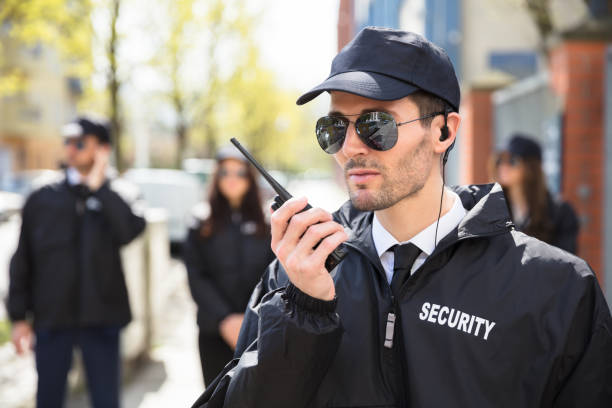Selecting the right security guard service for your business isn’t just about hiring personnel—it’s about partnering with professionals who understand your unique risks, industry, and goals. Whether you run a retail store, manage events, or oversee a corporate office, the right security team can mean the difference between safety and vulnerability. Here’s a step-by-step guide to making an informed decision.
1. Assess Your Business Needs
Before researching providers, identify your security requirements:
- Industry-Specific Risks:
- Retailers may prioritize loss prevention services to combat shoplifting.
- High-profile executives or event planners might need bodyguard services for VIP protection.
- Nightclubs or casinos often require crowd control and conflict resolution expertise.
- Location: High-crime areas or tourist-heavy zones (like Las Vegas) may need 24/7 patrols.
- Business Size: A small boutique has different needs than a sprawling construction site.
2. Understand the Types of Security Services Available
Security companies offer varied solutions. Key options include:
Static Guards
- Stationed at entrances, exits, or sensitive areas (e.g., cash registers, warehouses).
- Ideal for consistent, visible deterrence.
Mobile Patrols
- Random patrols of parking lots, warehouses, or neighborhoods.
- Combats trespassing, vandalism, and after-hours theft.
Specialized Services
- Bodyguard Services: Personal protection for executives, celebrities, or event VIPs.
- Loss Prevention Services: Undercover staff, surveillance monitoring, and theft audits for retail or hospitality businesses.
- Event Security: Crowd management, bag checks, and emergency response for conferences or festivals.
3. Verify Licensing and Credentials
Never compromise on legitimacy:
- Ensure guards are licensed through your state’s regulatory body (e.g., Nevada’s Private Investigator Licensing Board).
- Ask about certifications:
- Firearms permits for armed guards.
- Training in first aid, de-escalation, or crisis management.
- Confirm the company carries liability insurance.
4. Evaluate Experience and Reputation
Look for providers with a proven track record in your industry:
- Case Studies: Ask for examples of how they’ve handled situations like yours (e.g., reducing retail theft by 30%).
- Client Reviews: Check testimonials from businesses similar to yours.
- Local Expertise: Providers familiar with your area will understand regional risks (e.g., Las Vegas’ event-driven security demands).
5. Prioritize Technology and Innovation
Modern security relies on more than just personnel:
- Surveillance Integration: Guards trained to use CCTV, motion sensors, or AI analytics.
- Real-Time Reporting: Apps or platforms that provide incident updates.
- GPS Patrol Tracking: Ensures mobile units follow designated routes.
6. Ask the Right Questions
During consultations, clarify:
- “Can you tailor services to my schedule and risk level?”
- “How do you screen and train your guards?”
- “Do you offer bodyguard services or loss prevention specialists if needed?”
- “What’s your response time for emergencies?”
7. Compare Costs and Contracts
- Avoid hidden fees: Request detailed quotes covering personnel, equipment, and overtime.
- Balance affordability with quality: The cheapest option may lack critical training or technology.
- Seek flexible contracts: Month-to-month agreements are ideal for seasonal businesses.
8. Start with a Trial Period
Many providers offer short-term contracts to test their services. Use this phase to assess:
- Guard professionalism and responsiveness.
- Communication with the security company.
- Impact on incident rates (e.g., reduced theft or disruptions).
Why Specialized Services Matter
- Bodyguard Services: Essential for high-net-worth individuals, celebrities, or executives in volatile industries. Guards here blend discretion with threat assessment.
- Loss Prevention Services: Retailers benefit from undercover staff, RFID tagging, and data-driven strategies to minimize shrinkage.
Final Tips for Businesses
- Train Staff: Ensure employees know how to collaborate with security teams.
- Review Regularly: Update your security plan as your business grows or risks evolve.
- Build Relationships: Choose a provider that acts as a partner, not just a vendor.





Comments